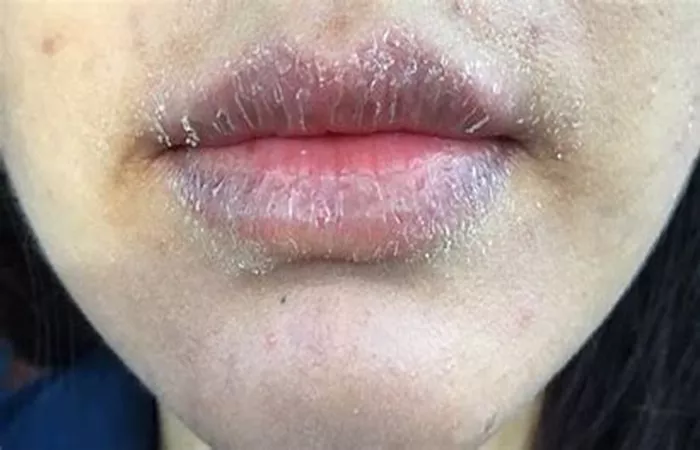Lip swelling can be an alarming and uncomfortable experience, often signaling an allergic reaction. Allergies affecting the lips may arise from various triggers, including food, medications, insect bites, or environmental factors. When swelling occurs, it’s essential to identify the cause and choose the right allergy medicine to alleviate symptoms promptly. This article explores the causes of lip swelling, common allergens, and the best medications to manage and prevent allergic reactions.
Causes of Lip Swelling Due to Allergies
Lip swelling, also known as angioedema, occurs when fluid accumulates beneath the skin, leading to puffiness and sometimes pain. Allergic reactions trigger the release of histamine, which causes blood vessels to dilate and fluids to leak into surrounding tissues. Several factors can contribute to this reaction:
Food Allergies: Common culprits include nuts, shellfish, eggs, and dairy. Even small traces can cause swelling in sensitive individuals.
Medications: Certain drugs, such as antibiotics (penicillin), NSAIDs (aspirin, ibuprofen), and ACE inhibitors (used for blood pressure), may induce allergic lip swelling.
Insect Stings or Bites: Bee stings, wasp venom, or ant bites can cause localized or systemic allergic reactions.
Environmental Allergens: Pollen, pet dander, or mold may lead to swelling in some people, though this is less common.
Contact Allergens: Lip balms, cosmetics, or dental products containing fragrances or harsh chemicals can trigger contact dermatitis.
Understanding the root cause is crucial in selecting the appropriate allergy medicine to reduce swelling and prevent future reactions.
Over-the-Counter (OTC) Allergy Medications for Lip Swelling
For mild to moderate allergic lip swelling, several OTC medications can provide relief. These drugs primarily work by blocking histamine, the chemical responsible for inflammation and swelling.
Antihistamines
Antihistamines are the first line of defense against allergic reactions. They help counteract histamine effects, reducing swelling, itching, and redness.
Diphenhydramine (Benadryl): A fast-acting antihistamine that can relieve swelling within 30–60 minutes. However, it may cause drowsiness, so it’s best taken at night or when rest is possible.
Loratadine (Claritin) & Cetirizine (Zyrtec): Non-drowsy options effective for long-lasting relief. These are preferable for daytime use.
Fexofenadine (Allegra): Another non-sedating antihistamine suitable for chronic allergy sufferers.
For best results, these should be taken as soon as swelling is noticed. If symptoms persist, additional treatments may be necessary.
Topical Treatments
In cases where lip swelling is accompanied by itching or irritation, topical creams and gels can provide localized relief.
Hydrocortisone Cream: A mild steroid cream that reduces inflammation when applied to swollen lips.
Calamine Lotion: Soothes itching and irritation caused by allergic reactions.
Aloe Vera Gel: A natural anti-inflammatory that can help calm irritated skin.
These are best used alongside oral antihistamines for comprehensive relief.
Prescription Medications for Severe Allergic Reactions
If lip swelling is severe, persistent, or accompanied by difficulty breathing (a sign of anaphylaxis), stronger prescription medications may be required.
Corticosteroids
For intense swelling that doesn’t respond to antihistamines, doctors may prescribe corticosteroids to suppress the immune response.
Prednisone: An oral steroid that reduces inflammation systemically.
Dexamethasone: A stronger steroid used in severe allergic cases.
These should only be taken under medical supervision due to potential side effects with prolonged use.
Epinephrine (For Anaphylaxis)
In life-threatening allergic reactions (anaphylaxis), epinephrine (EpiPen) is the emergency treatment. It works by constricting blood vessels, opening airways, and reversing severe swelling. If lip swelling is accompanied by:
- Difficulty breathing
- Swelling of the throat or tongue
- Rapid heartbeat
- Dizziness or fainting
Immediate use of an EpiPen and emergency medical attention are crucial.
Natural and Home Remedies for Mild Lip Swelling
For minor allergic reactions, some natural remedies can help reduce swelling and discomfort.
Cold Compress: Applying ice wrapped in a cloth can reduce swelling by constricting blood vessels.
Baking Soda Paste: Mixing baking soda with water and applying it to the lips may help soothe irritation.
Chamomile Tea Bags: The anti-inflammatory properties of chamomile can reduce puffiness when applied as a compress.
Hydration and Avoiding Triggers: Drinking water helps flush out allergens, while avoiding known triggers prevents recurrence.
While these methods can help, they should not replace medical treatment in cases of severe allergies.
Preventing Future Allergic Lip Swelling
The best way to manage lip swelling allergies is prevention. Key strategies include:
Identifying Triggers: Allergy testing (skin prick or blood tests) can pinpoint specific allergens.
Reading Labels: Checking food, cosmetic, and medication ingredients helps avoid exposure.
Carrying Emergency Medication: Those with severe allergies should always have antihistamines or an EpiPen on hand.
Using Hypoallergenic Products: Opting for fragrance-free lip balms and cosmetics reduces the risk of contact allergies.
When to See a Doctor
While mild lip swelling can often be managed at home, medical attention is necessary if:
- Swelling spreads to the throat or tongue.
- Breathing becomes difficult.
- Swelling persists beyond 48 hours despite medication.
- Hives, dizziness, or a rapid heartbeat develop.
A doctor can perform allergy tests, prescribe stronger medications, or recommend immunotherapy for long-term relief.
Conclusion
Lip swelling due to allergies can range from a minor nuisance to a life-threatening emergency. Recognizing the cause and responding with the right allergy medicine—whether OTC antihistamines, topical treatments, or emergency epinephrine—is essential for effective management. By understanding triggers and taking preventive measures, individuals can reduce the frequency and severity of allergic reactions, ensuring better comfort and safety.
If you experience recurrent or severe lip swelling, consulting an allergist can provide personalized treatment options and long-term solutions. Always prioritize safety and seek immediate medical help when facing a severe allergic reaction.
Relative topics:
- Is It Safe to Take Cold Medicine While Breast-Feeding?
- Worried About Using a Neti Pot? Here’s How to Use One Safely
- Picking the Right Cold Medication by Your Symptoms

